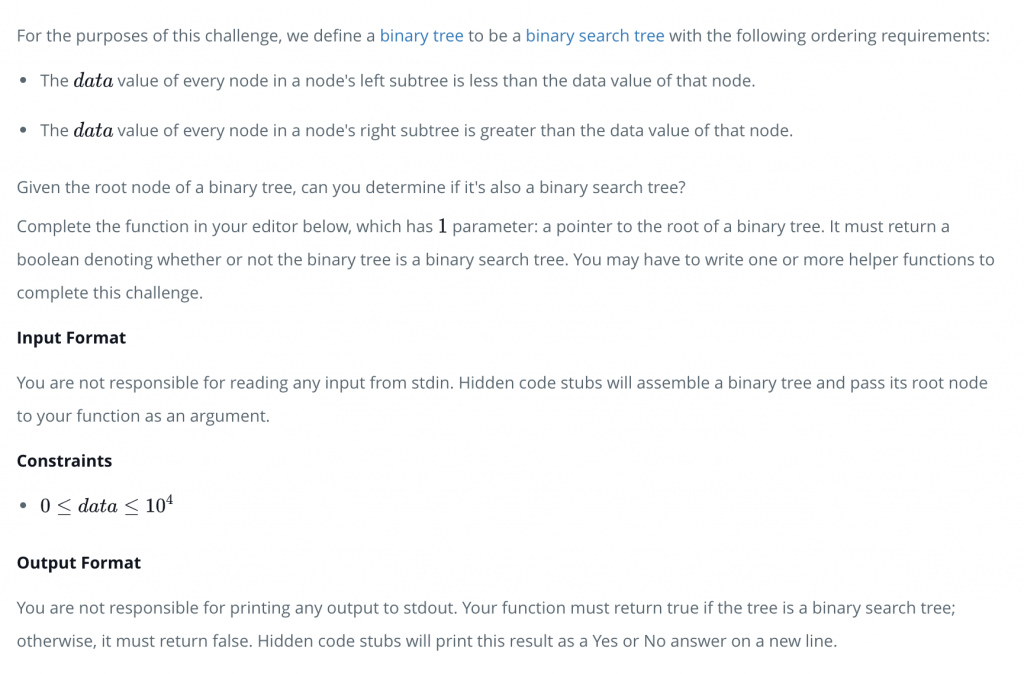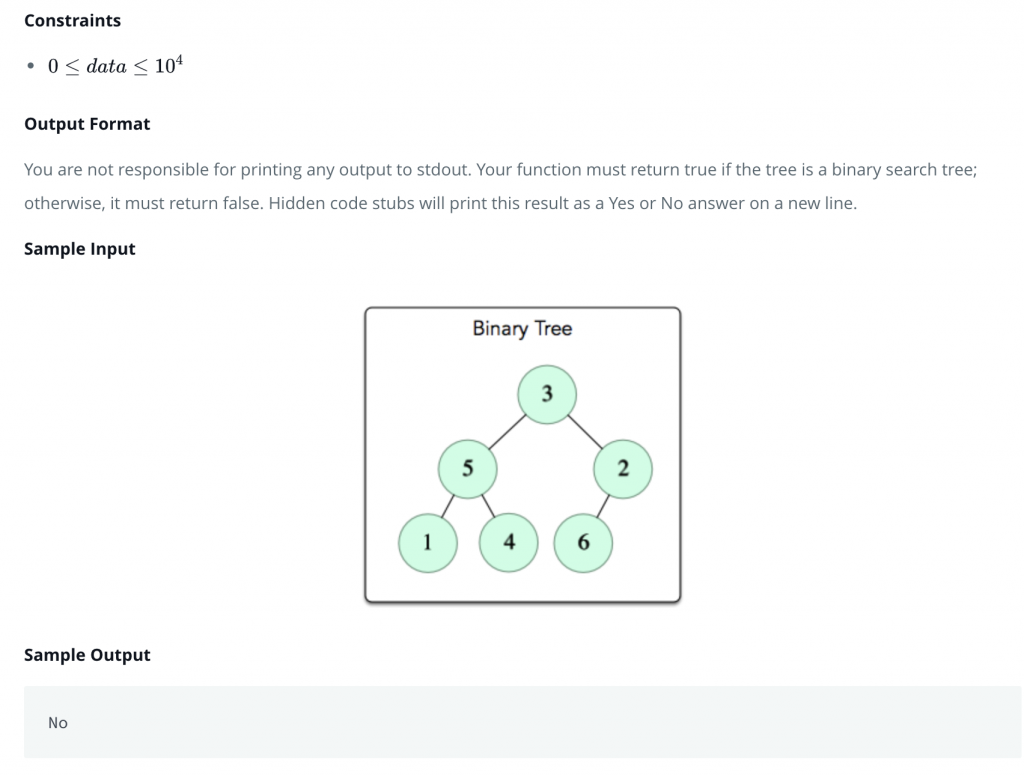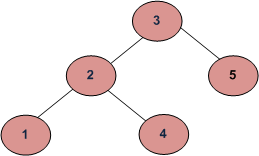Description


Submission
The special case should be considered

/* Hidden stub code will pass a root argument to the function below. Complete the function to solve the challenge. Hint: you may want to write one or more helper functions.
The Node struct is defined as follows:
struct Node {
int data;
Node* left;
Node* right;
}
*/
bool checkBSTUtil(Node* root, int minimum, int maximum)
{
if(root == NULL) return true;
if(root->data < minimum || root->data > maximum) return false;
return checkBSTUtil(root->left, minimum, root->data - 1) &&
checkBSTUtil(root->right, root->data + 1, maximum);
}
bool checkBST(Node* root) {
return checkBSTUtil(root, -1, 20000);
}